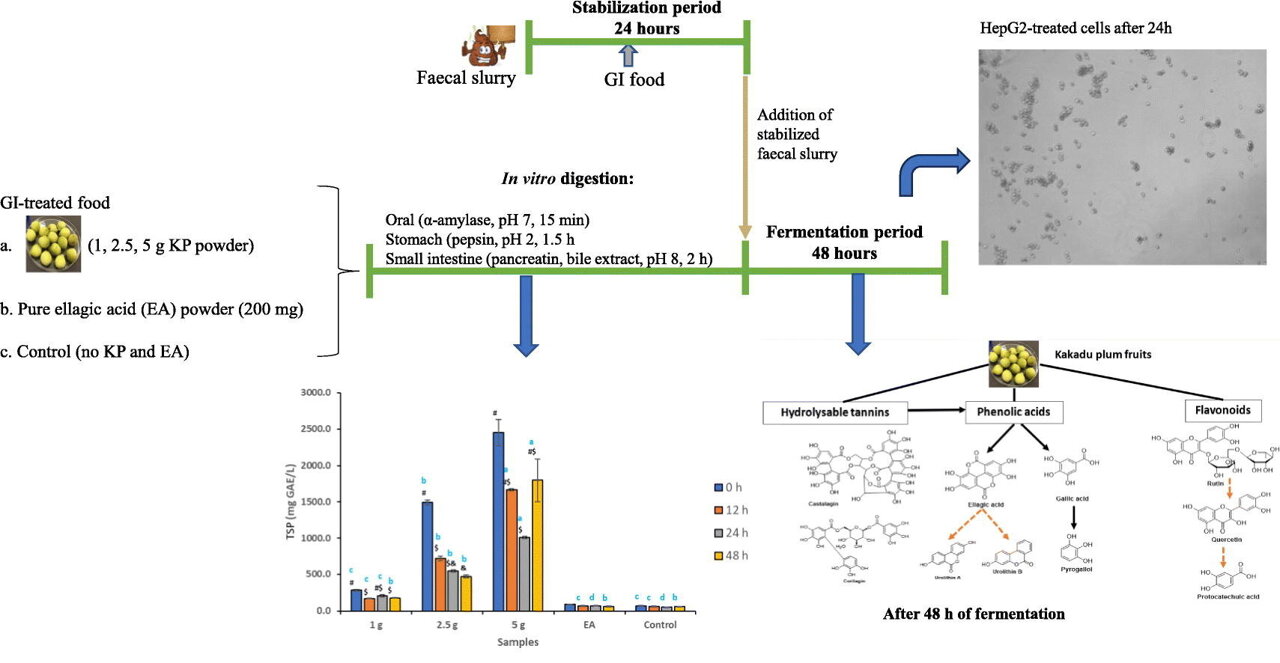
SCIENCE BACKS TRADITIONAL KNOWLEDGE OF KAKADU PLUM HEALTH BENEFITS
University of Queensland research has confirmed antioxidant properties in an Australian bushfood used by Indigenous people for generations.
Dr. Oladipupo Adiamo from UQ's Center for Nutrition and Food Sciences is investigating the safety and efficacy of powdered Kakadu plum as a food ingredient. His work is published in the journal Food Chemistry.
"Kakadu plum has been eaten and used for generations by Indigenous communities to treat headaches, colds and flu, and as an antiseptic," Dr. Adiamo said.
"But before the food industry can use it, they need scientific data to confirm what the fruit contains and what it does."
Dr. Adiamo says beyond its well-studied high vitamin C content, the fruit has polyphenolic compounds that give it antioxidant properties to prevent or delay cell damage.
"Polyphenolic compounds are found naturally in plant-based foods and can help lower risk for certain diseases," he said.
"We wanted to see how these polyphenols behave when we consume Kakadu plum powder.
"We found that when those big compounds are broken into smaller compounds by microbiota in the gut, they have even higher antioxidant properties and are easier for the body to absorb.
"Our digestive microbiota plays a crucial role in helping us benefit from Kakadu plum and proves we can confidently use the powder in food products."
Dr. Adiamo said the results were promising and backed up Indigenous knowledge, but further work was needed.
"There are some things we didn't cover in our research, such as the mechanism responsible for changing the big compounds to small compounds," he said.
"Another challenge is fruit supply because it is wild harvested.
"I'm hoping that when the health benefits are proven, there will be more demand for Kakadu plum, leading to business opportunities for Indigenous communities to grow and add value to their harvest."
More information: Oladipupo Q. Adiamo et al, In-vitro colonic fermentation of Kakadu plum (Terminalia ferdinandiana) fruit powder: Microbial biotransformation of phenolic compounds and cytotoxicity, Food Chemistry (2024). DOI: 10.1016/j.foodchem.2024.139057
Provided by University of Queensland
This story was originally published on Phys.org. Subscribe to our newsletter for the latest sci-tech news updates. 2024-09-18T16:49:49Z dg43tfdfdgfd